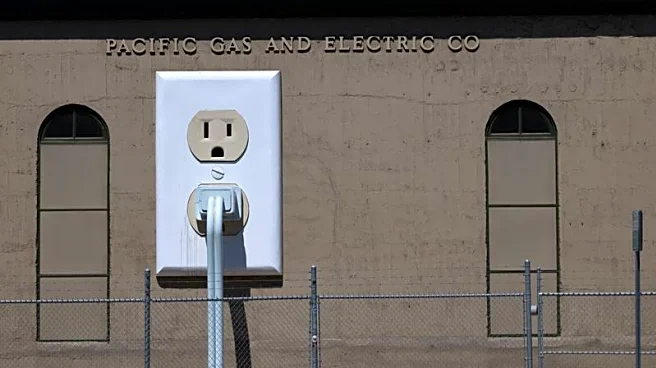What's Happening?
The delivery of the Viking Vigor, a next-generation construction support vessel (CSV) being built at the Turkish Sefine Shipyard for Norway's Eidesvik Offshore and Agalas, has been delayed. Originally
scheduled for early 2026, the delivery is now expected in the third quarter of the same year. The vessel will feature a battery hybrid system and methanol operation capabilities, designed for inspection, maintenance, and repair work in subsea and offshore wind markets. It will be equipped with a 150-metric tonne crane and a large deck area, accommodating up to 100 people. Upon delivery, it will begin a three to five-year charter with Reach Subsea.
Why It's Important?
The delay in the vessel's delivery could impact operations in the subsea and offshore wind markets, where such advanced vessels are crucial for maintenance and repair tasks. Eidesvik Offshore and Agalas, as majority owners, may face operational and financial implications due to the rescheduling. The delay also highlights challenges in shipbuilding timelines, which can affect strategic planning and contracts in the maritime industry. The vessel's advanced features, such as hybrid systems and methanol operation, represent significant technological advancements in sustainable maritime operations.
What's Next?
The rescheduled delivery timeline may require Eidesvik Offshore and Agalas to adjust their operational plans and contracts with Reach Subsea. The delay could lead to renegotiations or extensions of existing agreements. Stakeholders in the maritime industry will likely monitor the situation, as it may influence future shipbuilding projects and technological investments. The delivery of another similar vessel, scheduled for spring 2027, may also be affected, prompting further strategic adjustments.
Beyond the Headlines
The delay underscores the complexities of integrating advanced technologies in shipbuilding, such as hybrid systems and methanol operation. It highlights the industry's shift towards sustainable practices and the challenges associated with implementing these innovations. The situation may prompt discussions on improving project management and timelines in shipbuilding, as well as the role of technology in enhancing maritime operations.










